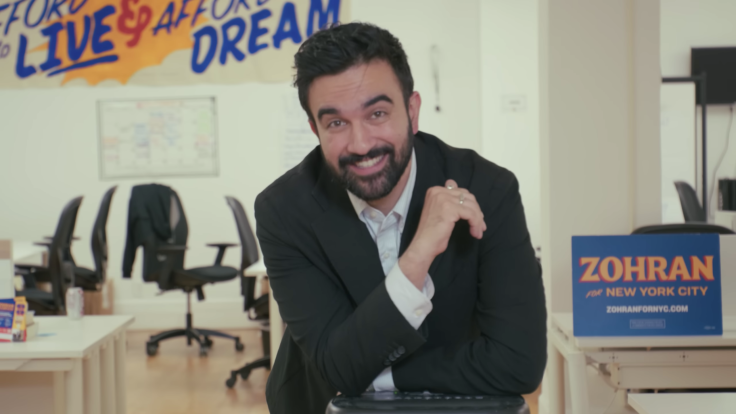'Not an American at All': Zohran Mamdani Too International for City Hall? Mother's Old Interview Resurfaces
NYC mayoral candidate Zohran Mamdani faces backlash after mother's old remark.

Is Zohran Mamdani too international for City Hall? The resurfacing of comments by his mother describing him as 'not an American at all' has intensified a debate over identity, loyalty, and the image of a mayor for the nation's largest city.
As New Yorkers weigh policy and personality ahead of the vote, that old interview has been seized by critics and examined by allies, raising questions about how a politician's roots should factor into public life.
Who is Zohran Mamdani?
Zohran Mamdani's rise from relative obscurity to the Democratic nomination for New York mayor has been swift. Born in Uganda, raised partly in India and the United States, and naturalised as an American in 2018, he presents a global biography that differs from many mainstream candidates.
His parents are prominent in academic and cultural circles: his father teaches at a major university, and his mother is an internationally recognised filmmaker. That upbringing helped shape his politics and worldview, and it is that very cosmopolitanism that supporters say gives him a broader perspective on urban governance.
The comments that have resurfaced date from a 2013 interview in which Mira Nair, Mamdani's mother, discussed his sense of identity during his college years. She used terms rooted in South Asian languages to describe the family's cultural orientation and suggested he felt at home in multiple places rather than identifying solely as American.
Critics across the political spectrum have interpreted that as evidence of disloyalty or an unwillingness to embrace American civic identity, while defenders argue the remarks reflect family pride in heritage and a complex personal history rather than a repudiation of citizenship or commitment to the United States.
National Identity Meets Political Perception
Identity is a fraught subject in modern electoral politics, and the Mamdani story highlights how personal history can be reframed for political ends. Opponents have weaponised the interview to portray Mamdani as out of step with mainstream American values, using language that labels his family's emphasis on South Asian culture as an affront to national belonging.
Media outlets with different editorial slants have amplified that narrative, often pairing the resurfaced remarks with other controversies to suggest a pattern of problematic behaviour or sympathies.
Supporters counter that the focus on an offhand family comment ignores Mamdani's record in public life. They point to his work as a state legislator, his platform addressing affordability and public services, and the grassroots energy that propelled him through a crowded primary.
To them, the debate over whether he is 'American enough' distracts from substantive policy discussions about housing, transit, and childcare. For many voters, the question will be whether a candidate can manage the city's complex systems and broker deals across diverse constituencies, irrespective of birthplace or cultural expression.
NEW: The mother of NYC socialist mayoral candidate Zohran Mamdani refused to call her son “American” — and used language some view as derogatory toward the U.S. in a resurfaced 2013 interview.
— Fox News (@FoxNews) October 29, 2025
"It’s flippant, divisive, and dripping with contempt for the very country that gave… pic.twitter.com/ySEfrSV9xC
Political Consequences and Strategic Responses
The revelation has forced strategic calculations on several fronts. National and state Democratic leaders have been cautious, concerned about being tied to a candidate who can be cast as too radical or insufficiently patriotic by rivals.
Mamdani's campaign has sought to blunt criticism by emphasising his commitment to the city, his citizenship, and his practical plans for governance, while his opponents have continued to press the cultural angle to sway undecided voters and reassure business and institutional leaders.
The timing, shortly before a high-profile election, means the story could have an outsized influence on perceptions, particularly among older or more conservative voters who prioritise clear displays of national loyalty.
Conversely, younger and immigrant voters who value plural identities may view the controversy as manufactured and irrelevant, even galvanising turnout among those who see diversity as a strength. The broader media ecosystem, from tabloids to financial papers, has shaped the narrative in varying directions, demonstrating how disparate outlets can amplify a personal detail into a campaign issue.
The debate over whether Mamdani is 'too international' for City Hall reveals less about the candidate's administrative abilities and more about how identity is used in contemporary politics. Voters must decide if cultural heritage and family remarks should factor into choosing a mayor capable of running a vast, diverse metropolis.
© Copyright IBTimes 2025. All rights reserved.





















